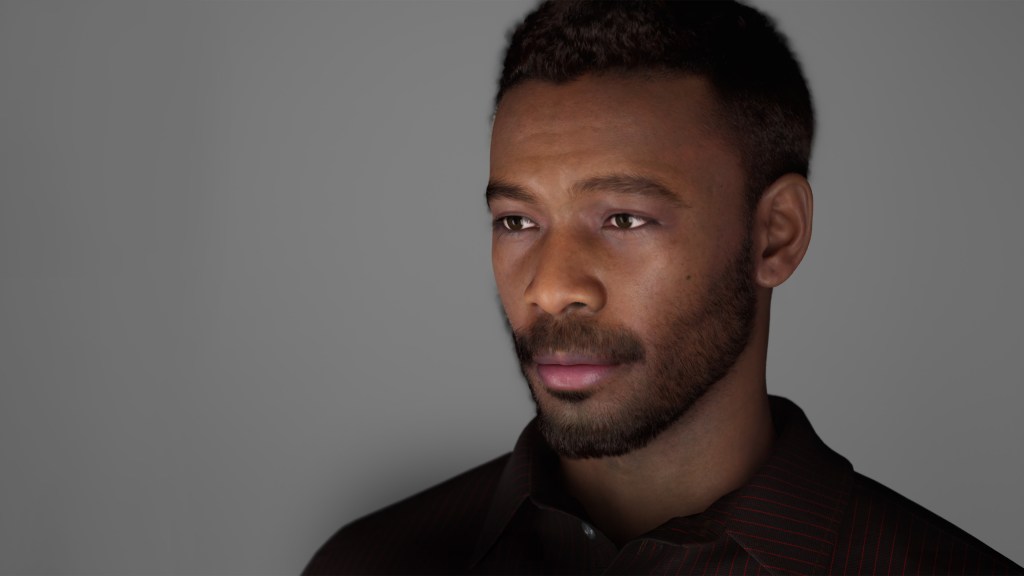Save 50% on a 3-month Digiday+ membership. Ends Dec 5.
Media Buying Briefing: Agencies’ AI efforts lead to aliens and Whoppers

This Media Buying Briefing covers the latest in agency news and media buying for Digiday+ members and is distributed over email every Monday at 10 a.m. ET. More from the series →
Artificial intelligence could potentially become agencies’ differentiator in the next few years, so how good is the technology right now?
Over the past year, agencies of all stripes have in some way tested or integrated generative AI – from developing briefs and creative assets to using it to power back-end processes or making chatbots. As AI experimentation enters its next phase, media and influencer agencies alike are taking on bigger client projects and building more complex tools on a larger scale. Still, a lot of uncertainty remains.
“[AI] is a powerful new technology that’s very much in its toddler phase, and we don’t know yet what it will grow up to be,” said Kyle Monson, founding partner at integrated marketing shop Codeword, which started an internship program with two AI interns last year to learn more about the technology.
From alien robots to burgers
Earlier this year at the annual Consumer Electronics Show in Las Vegas, S4 Capital’s Media.Monks unveiled its alien AI “advisor,” Wormhole, as part of showcasing its new AI offering called Monks.Flow.
It’s a part of bringing some of the Monks.Flow AI capabilities into the real world, showing how the tools can automate processes and connect various marketing activities. Now its conversational AI applications will hopefully get better with research to integrate all the voice, text and visual components in the future, said Peter Altamirano, vp and global head of technology at Media.Monks.
“We are already in conversation with some clients potentially to bring it to the world at scale, but the larger experiences or global scale have a couple of more challenges we need to go through,” Altamirano said.
Ad position: web_incontent_pos1
Over time, Media.Monks’ latest AI avatar, Omni, will help the agency test client applications on a larger scale, from example use cases like building personalized brand experiences to deploying the assistant in hotels or retail stores – it just depends on the client and purpose. As of today, the digital avatar can interact conversationally and relay information, but more advanced functions will ideally come in the future – like the ability for Omni to recognize different speakers’ voices or have visual capabilities to know who is who in the room – which would allow it to chime in during meetings or chat in other group settings.

This month, the agency tested another area of its AI offering by launching its largest generative AI project to date with Burger King. With the BK Million Dollar Whopper Contest, burger fans come up with a Whopper by plugging in ingredients for a chance to get their creation sold in the chain and win $1 million.
The project combines large language models, a type of AI program that generates texts and tasks, image generation and audio to build more than 200,000 possible Whoppers. After making a Whopper, users can also create their own Burger King ad with their name and a jingle generated by AI.

Ad position: web_incontent_pos2

These projects are focused on pushing the potential of AI and learning from the challenges and development process, like taking bad actors and ethical or privacy considerations into account. For Burger King, the back-end had to manage a large influx of contest entries and ingredients people came up with – while thinking ahead on brand safety to rule out anything that wouldn’t be allowed on the list. As for the AI avatars, designing an alien versus a realistic human required very different considerations and showed the agency how people would interact differently based on what was physically in front of them.
“AI will allow marketers and their agencies to get sharper and smarter about their audiences, their behavior and intents and their unmet needs,” said Sarah Lent, president of Omnicom B2B agency Doremus+Co.
AI fuels influencer matchmaking
Within influencer marketing, some agencies have recently been testing AI’s ability to match creators and influencers to brand and campaign specifications – like finding that specific creator who’s a parent with curly hair, for example. Influencer agencies from Socially Powerful to Billion Dollar Boy are building their own software to connect the right content creators to clients.
In January, Socially Powerful launched its search platform Aria for brands as a free tool to access some 200 million influencers. Users can search on a more granular level as the platform uses visual AI search functionality – everything from visual traits to fashion choices. It’s based on seven years of historical data on campaign performance, influencer data and searches brought together, explained James Hacking, founder of Socially Powerful.
“It’s taken one year of development and $300,000 of our own money to build,” Hacking said. “People think we’re crazy by giving Aria away for free when other influencer technology providers have raised tens of millions of dollars to build their solution.”
With previous tools they licensed, there was limited search functionality, a small pool of influencers and a lack of other insight features, Hacking added. Powered by ChatGPT4 and Amazon Rekognition, Aria’s goal was to take brand briefs and predict the best influencers for a campaign using natural language prompts and visual characteristics rather than pre-set filters – then using generative AI to mock up a visual of a potential campaign using prompts and information based on an influencer’s previous experience.
It also offers predictions on engagement rate and response insights to the mock campaigns it creates. While it can search up to 200 million influencer profiles, the platform can alternatively limit the search to Socially Powerful’s vetted network containing 50,000 influencers – which the agency said can increase over time with more people using it and enhancing its machine learning.
While Aria is free right now, Hacking believes the real value beyond its search capabilities is the social media execution, strategy and performance. The challenge clients face isn’t simply matching with the appropriate influencers – it’s as much or more about what to do once matched.
“Then you have the headache of, once you’ve found the influencers, you have the task of trying to manage the whole process, come up with KPIs and come up with a strategy to win on social,” Hacking said.
While it’s too soon to tell which agencies will see their investments ultimately pay off, Doremus’ Lent said tech-focused agencies may certainly have a better grasp on the connections and content through these pilots.
“There is a real opportunity for agencies to showcase what they can do best,” she added. “Create human-centered, brand-led ideas that build understanding and trust.”
Color by numbers
Regulators have recently focused their attention on strengthening children’s online privacy laws. Precise TV released a new advertiser study on children and families’ media consumption. Some highlights from the data on a panel of 2,000 families (parents and children aged 2 to 12 in the U.S.):
- 95% of parents and kids aged 2 to 12 watch YouTube together, with parents saying they’re 60% more likely to purchase a product advertised while watching something with their kids.
- Gaming content is the third-most popular media consumption category for kids.
- Six in 10 kids play mobile or tablet games where they recall ads and show these purchase decisions to parents.
Takeoff & landing
- Dentsu‘s full-year 2023 financial results reflect another holding company that’s trying to get it right amidst top-level executive change, but is struggling to eke out growth. In fact, organic revenue shrank nearly 5% while 2024 organic revenue growth is expected to be largely flat at 1%. Client losses also have hurt the Japan-based holdco.
- GroupM North American CEO Sharb Farjami promoted JiYoung Kim to be its new COO, from president of GroupM Nexus (which she will for now continue to run); Farjami also promoted Lynne Reilly to GroupM’s chief growth officer, a position she most recently held for Wavemaker.
- Independent agency reverse-holding company Worldwide Partners signed up another four shops: experiential studio MVRK, which has Verizon, Google, Disney, and Amazon for clients; Sao Paolo, Brazil-based promotion, events and experiential shop The Group, which counts Danone, Netflix and Volkswagen as clients; London-based social media, SEM/SEO and PR agency Tigerbond Group, with Tesco and Apex Hotel as clients; and B2B creative agency Digital Radish, which is also London-based and counts Oracle, Infosys and Citrix as clients.
- Influencer marketing agency Collectively won Haleon‘s consumer health business in the U.S., charged with crafting creator-led campaigns for the company’s OTC and wellness brands including Advil, Sensodyne, and Tums.
Direct quote
“We know that OpenAI already has its hands on a disruptive technology. If there’s a lesson from the Bing/OpenAI foray into AI for search, it’s that making such moves is a good way to get Google’s attention. While it would be surprising if a search interface from OpenAI – especially one that is reliant on the much less popular Bing – actually made a dent in Google’s search dominance, still we have to admit that ChatGPT itself was a surprise, and that OpenAI could have a spin on search up its sleeve that extends its influence as a disruptor … If anyone can do it, OpenAI is certainly the one to watch.”
— Damian Rollison, director of market insights at mar-tech firm SOCi on the future of competition in search.
Speed reading
- Ronan Shields has been all over the issues around Google’s Privacy Sandbox of late, including the back-and-forth between Google and the IAB’s report
- Kristina Monllos covered Snapchat’s repositioning, through its latest campaign during the Grammys and Super Bowl, to return to its original connection roots as a social media platform.
- Michael Bürgi covered Meet the People’s formal rollout of media agency Swell Media, which the mini-holding company acquired with its purchase of Saltwater Collective last year.
More in Media Buying

The Trade Desk loosens its grip on pricing amid buyer pressure
Amid fierce DSP competition, media agencies are finding The Trade Desk’s reps in a negotiating mood.

Criteo CEO Michael Komasinski on agentic commerce, experiments with LLMs, and M&A rumors
Criteo is not up for sale, although ‘no comment’ on potential divestment of assets, and how the future of ads in LLMs is (likely) native.

Ad Tech Briefing: The Programmatic Governance Council is a bid to reset power dynamics
As tensions over TID and GPID peak, Tech Lab is convening a council to hash out commercial ground rules.
Ad position: web_bfu



